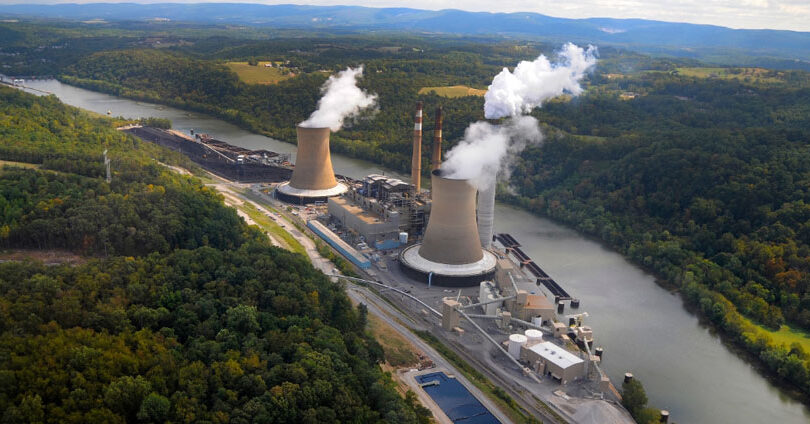MORGANTOWN – The state Public Service Commission filed extensive comments with the U.S. EPA this week, calling on the agency to withdraw or revise its proposed new greenhouse gas emissions rule for power plants – calling the proposal “unconscionable,” unachievable and an “end-run” around Congress in EPA’s goal to close fossil fuel plants.
“Should the proposed rules be adopted,” PSC said, there will certainly be follow-on litigation to prevent the proposed rules from becoming effective.”
The proposed rule is called the “New Source Performance Standards for Greenhouse Gas Emissions From New, Modified, and Reconstructed Fossil Fuel-Fired Electric Generating Units; Emission Guidelines for Greenhouse Gas Emissions From Existing Fossil Fuel-Fired Electric Generating Units; and Repeal of the Affordable Clean Energy Rule.”
The EPA says the proposed rule would set limits for new gas-fired combustion turbines; existing coal, oil and gas-fired steam generating units, and certain existing gas-fired combustion turbines. “The proposed standards are based on technologies such as carbon capture and sequestration/storage, low-GHG hydrogen co-firing, and natural gas co-firing, which can be applied directly to power plants that use fossil fuels to generate electricity.”
EPA says, “The proposed new source performance standards and emission guidelines reflect the application of the best system of emission reduction that, taking into account costs, energy requirements, and other statutory factors, is adequately demonstrated for the purpose of improving the emissions performance of the covered electric generating units.”
PSC disagrees with essentially all of EPA claims.
PSC explains that the rules must be evaluated based on best system of emission reduction (BSER) and whether the so-called BSER is commercially feasible, how the rules would affect the power grid and economy and whether they are within EPA’s statutory authority.
PSC wrote that the proposed rules came following the Supreme Court’s 2022 decision in West Virginia v. Environmental Protection Agency, which blocked the EPA’s prior effort to eliminate fossil fuel power plants, and says Congress must speak clearly if Congress wishes to assign to an agency decisions of vast economic and political significance.
The proposed rules are once again outside EPA’s authority, PSC said. EPA had historically enacted emissions restrictions for individual generation sources. Since its previous effort to achieve system-wide generation shifting failed, EPA is now trying the same thing by requiring technology-based solutions that don’t exist and can’t be implemented.
“A BSER is never legitimate if it is based on ‘purely theoretical or experimental technologies,” PSC said, citing legal precedent. “This is how the proposed rules attempt to execute an ‘end run’ around WV v EPA, proposing a technology that purports to apply to individual generators, but is not commercially available to implement.”
PSC discusses EPAs solutions – gas/hydrogen co-firing and carbon capture and sequestration, detailing how those technologies are in their infant stages, unproven and prohibitively expensive. “Technological impossibility is a stake at the heart” of EPAs proposal.
PSC then talks about the proposed rules’ threat to the power grid. It cites risk assessments and warnings by the North American Electric Reliability Corporation (NERC), whose job is to assess and report on grid reliability, adequacy and risks.
NERC warned as early as 2018, PSC said, that accelerated retirement of coal-fired and nuclear plants could lead to outages, shortfalls, and transmission problems, and warned again in 2022 that extreme weather could pose problem – borne out shortly after by Winter Storm Elliott.
“The EPA now chooses to turn a blind eye to the real and most critical threat to our nation’s reliable power supply and to double down on its role in creating the grid reliability problem predicted by NERC.”
While EPA may believe that retirement of individual plants doesn’t affect grid reliability, PSC said. “Piecemeal single-plan analyses are incomplete and do not paint an accurate picture of the reduced reliability that will occur with the sudden loss of multiple coal-fired generation all at the same time.”
PSC makes one final point: the state supported upgrades and improvements to its coal-fired fleet in compliance with EPA orders issued just a few years ago and residents are already paying higher rates for that compliance.
“The proposed rules require a completely new and commercially untested technology for coal and natural gas turbines,” PSC said. “Once again, the bait-and-switch tactic of identifying BSER in an attempt to circumvent WV v EPA is an unconscionable violation of any reasonable test imaginable.”
With these comments, PSC joined a chorus of West Virginia voices opposing the rules. In June, Sen. Shelley Moore Capito and Rep. Carol Miller teamed to introduce a bill in their respective chambers to stop the EPA from implementing the proposed rules.
Its proposed new greenhouse gas emissions rule for power plants – the Protect Our Power Plants Act – a rule they say would force the closure of coal – and gas-fired power plants. The rule is an illegal interpretation of the Clean Air Act and has not been authorized within the CAA or any other provision of Federal law, they said.
And last week, Sen. Joe Manchin, chairman of the Energy and Natural Resources Committee, praised the Federal Energy Regulatory Commission for saying announced it would hold a Reliability Technical Conference to evaluate the impacts to the electric grid from proposed rules.
“As Chairman of the Senate Energy and Natural Resources Committee,” he said, “I have held multiple hearings with our nation’s electric grid reliability experts — including witnesses from FERC and the North American Electric Reliability Corporation — to push them to investigate the impact of the EPA’s proposed rules on our coal and natural gas power plants.
“And, as an Appropriations Committee member,” he said, “I ensured an amendment was included in the Senate’s Fiscal Year 2024 funding bills pushing EPA to seek this kind of input from FERC and NERC. I am glad to see that FERC has taken up this call and will assess reliability impacts from the EPA’s unreasonable power plant regulations.”
Email: dbeard@dominionpost.com




